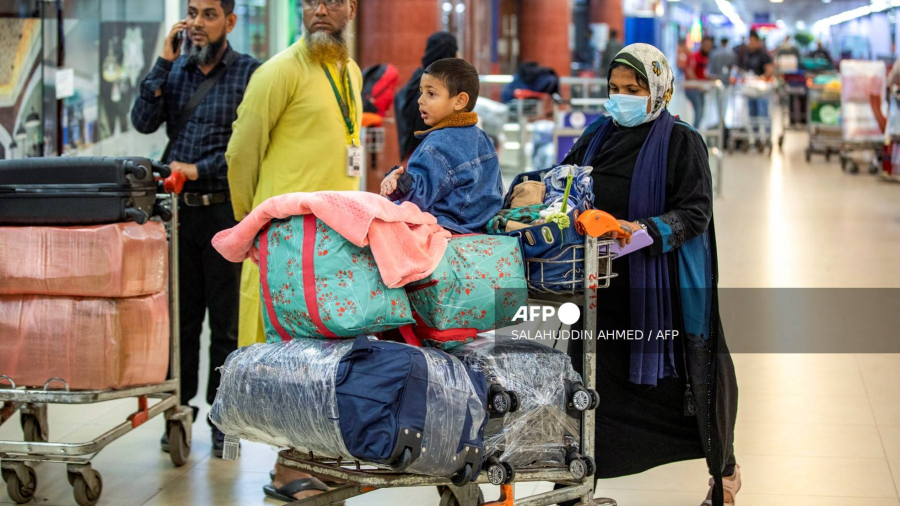The first group of Bangladeshis airlifted home after fleeing the escalating Israeli air strikes in Lebanon shared harrowing experiences of living in constant fear amid ongoing explosions.
Late Monday, 54 of an estimated 1,800 Bangladeshis, desperate to escape the violence, were flown back to Dhaka on a government-sponsored flight. Many of them left behind long-established lives in Lebanon, uncertain of what the future holds back home.
According to Bangladesh’s foreign ministry, between 70,000 to 100,000 Bangladeshis are employed in Lebanon, mainly as laborers and domestic workers.
For Abul Kashem, 68, who had lived in Beirut for nearly 40 years, surviving the civil war and previous conflicts, the current violence is unprecedented. “I have never seen any war like this,” he said, recounting how the gas station he worked at was reduced to rubble by the strikes. Exhausted after his journey home, he added, “Everything around the fuel pump where I worked has been destroyed.”
Kashem was among those evacuated on a flight chartered by the UN’s International Organisation for Migration, as Israel intensified its air campaign against Hezbollah. The offensive, which began last month, aims to push the group back from Israel’s northern border, where Hezbollah has launched thousands of projectiles, displacing tens of thousands of Israelis.
Bangladeshi workers in Lebanon, who had been earning money to support their families back home, were caught in the crossfire of a war that escalated rapidly. Mohammad Hossain, 28, returned with his wife and infant child after their neighborhood was devastated. “Five buildings near my residence were brought to the ground,” he said, describing the “intense” attacks that left cars “almost melting.”
The nearly month-long conflict has claimed at least 1,489 lives in Lebanon, according to Lebanese health ministry figures. Bangladesh’s Business Standard reported that at least five Bangladeshi citizens were wounded, while thousands fled northern border zones within Lebanon.
Hossain expressed relief after returning to Bangladesh, saying, “When the plane left the airport in Lebanon, I immediately felt peace in my mind.”
For those returning, the challenge now lies in finding employment in Bangladesh, where the political landscape is shifting after the fall of former leader Sheikh Hasina on August 5. The loss of remittances from workers abroad will impact many families in Bangladesh, a country where over 5% of its GDP comes from personal remittances, according to the World Bank.
Bangladesh’s foreign ministry, which is covering the cost of the evacuation flights, confirmed that 65 more citizens would return on Tuesday.
Ruma Khatun, 30, who first sought refuge in Beirut, decided to return home as well. “The situation is very bad,” she said. “When we were taking off from Lebanon, we could still hear the sound of bombing.”
